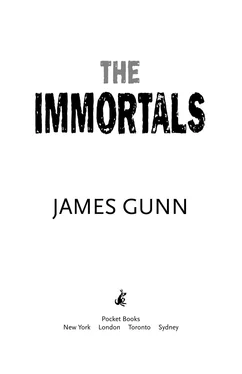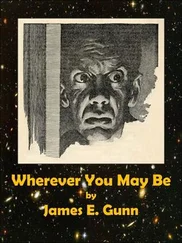“If you’re smart,” Jansen told him on the stairs, “you’ll cooperate with Mister Weaver. Do what he asks you. Tell him what he wants to know. You’ll get taken care of. If not—” Jansen smiled unpleasantly.
Pearce laughed. “What can Weaver do to me?”
“Don’t find out,” Jansen advised.
The blood bank was clean and efficient and, for the moment, empty except for the phlebotomist. When Jansen asked for the information about Weaver’s transfusion, she keyed in Weaver’s name on her computer. “Weaver?” she said. “Here it is. On the fourth.” Her finger traveled across the screen. “O-neg.”
Pearce said to the technician, “Have you had any donations from Mister Weaver’s office?”
“None that have identified themselves.”
“You’re just making difficulties,” Jansen said. “There’s no such rule about replacing blood, but don’t worry: You’ll get your blood tomorrow. Who was the donor?”
“That information cannot be released,” the technician said.
“We can get a court order here within two hours,” Jansen replied.
“Go ahead,” Pearce said. “I’ll take responsibility.”
The technician pressed another key and the array of data shifted on the computer screen. “Marshall Cartwright,” she said. “O-neg. Kline: Okay. Now I remember. That was the day after our television appeal. We ran low on O-neg, and our usual donor list was exhausted. The response was limited.”
“Remember him?” asked Jansen.
She frowned and turned her head away to stare out the window. “That was the third. We have more than twenty donors a day. And that was over a week ago.”
“Think!” Jansen demanded.
“I am thinking,” she snapped. “What do you want to know?”
“What he looked like. What he said. His address.”
“Was there something wrong with the blood?”
Pearce grinned suddenly. “ ‘Contrariwise,’ said Tweedledee.”
A brief smile slipped across the technician’s face. “We don’t get many complaints like that. I can give you his address easy enough.” She punched some keys on her computer. “Funny. He sold his blood once, but he didn’t want to do it again.
“Cartwright. Marshall Cartwright. Abbot Hotel. No phone listed.”
“Abbot,” Jansen said thoughtfully. “Sounds like a flop joint. Does that bring anything back?” he asked the technician insistently. “He didn’t want his name on the donor’s list.”
Slowly, regretfully, she shook her head. “What’s all this about anyway? Weaver? Isn’t that the rich old guy up in 305 who made such a miraculous recovery?”
“Right,” Jansen said, brushing the question away. “We’ll want copies of the computer entries.”
“You can have the computer entries as soon as the technician can have them run off,” Pearce cut in.
“In the next hour,” Jansen said.
“In the next hour,” Pearce agreed.
“That’s all, then,” Jansen said. “If you remember anything, get in touch with Mister Weaver or me, Carl Jansen. There’ll be something in it for you.”
Something in it, something in it, Pearce thought. The slogan of a class. “What’s in it for the human race? Never mind. You got what you came for.”
“I always do,” Jansen said brutally. “Mister Weaver and I—we always get what we come for. Remember that!”
Pearce remembered while the young-old man named Leroy Weaver grew a handsome set of teeth, as white as his hair was black, and directed the course of his commercial empire from the hospital room, chafed at Pearce’s delay in giving him the answer to his question, at the continual demands for blood samples, at his own enforced idleness, and slyly pinched the nurses during the day. Pearce did not inquire into what happened at night.
Before the week was over, Weaver had discharged himself from the hospital and Pearce had located a private detective.
The black paint on the frosted glass of the door read:
JASON LOCKE
Private Investigations
But Locke wasn’t Pearce’s preconception of a private eye. He wasn’t tough—not on the outside. The hardness was inside, and he didn’t let it show.
Locke was middle-aged, graying, his face firm and tanned, a big man dressed in a well-draped tropical suit in light cocoa; he looked like a successful executive. But business wasn’t that good: The office was shabby, the furniture was little better, and there was no secretary or receptionist.
He was just the man Pearce wanted.
He listened to Pearce and watched him with dark, steady eyes.
“I want you to find a man,” Pearce said. “Marshall Cartwright. Last address: Abbot Hotel.”
“Why?”
“What difference does it make?”
“I have a license to keep—and a desire to keep out of jail.”
“There’s nothing illegal about it,” Pearce said, “but there might be danger. I won’t lie to you; it’s a medical problem I can’t explain. It’s important to me that you find Cartwright. It’s important to him—it might mean his life. It might even be important to the world. The danger lies in the fact that other people are looking for him; if they spot you they might get rough. I want you to find Cartwright before they do.”
“Who is ‘they’?”
Pearce shrugged. “Pinkerton, Burns, International—I don’t know. One of the big firms, probably. Maybe a private outfit.”
“Is that why you don’t go to them?”
“One reason. I won’t conceal anything, though. The man hiring them is Leroy Weaver.”
Locke looked interested. “I heard the old boy was back on the prowl. Have you got any pictures, descriptions, anything to help me spot this man Cartwright?”
Pearce looked down at his hands. “Nothing except the name. He’s a young man. He sold a pint of blood on the third. He refused to have his name added to our professional donor’s file. He gave his address then as the Abbot.”
“I know it,” Locke said. “A fly trap on Ninth. That means he’s left town, I’d say.”
“Why do you say that?”
“That’s why he sold the blood. To get out of town. He wasn’t interested in selling it again; he wasn’t going to be around. And anyone who would stay at a place like the Abbot wouldn’t toss away a chance at some regular, effortless money.”
“That’s what I figured,” Pearce said. “Will you take the job?”
Locke swung around in his swivel chair and stared out the window across the light standards, transformers, and overhead power lines of Twelfth Street. It was nothing to look at, but he seemed to draw a decision from it. “Two hundred fifty dollars a day and expenses,” he said, swinging back. “Fifty more if I have to go out of town.”
That was the afternoon Pearce discovered he was being followed.
He walked along the warm autumn streets, and the careless crowds, the hurrying, anonymous shoppers, passed on either side without a glance and came behind, and conviction walked with him. He moved through the air-conditioned stores, quickly or dawdling over a display of deodorants at a counter, casually glancing behind in a way calculated to conceal his unease, seeing nothing but sure that someone was watching.
The symptoms were familiar. They were those of paranoia, of people in that wistful, tormented period of middle age when potential has turned to regret and one looks for someone or something to blame besides oneself. Pearce had never expected to share them: the sensitivity in the back of the neck and between the shoulder blades that made him want to shrug it away, the leg-tightening desire to hurry, to run, to dodge into a doorway, into an elevator…
Pearce nodded to himself and lingered. When he went to his car, he went slowly, talked to the parking lot attendant for a moment before he drove away, and drove straight home.
Читать дальше












